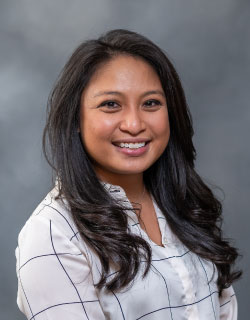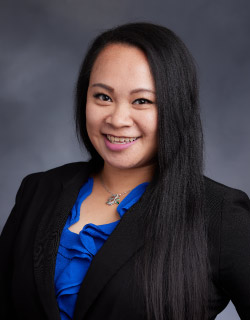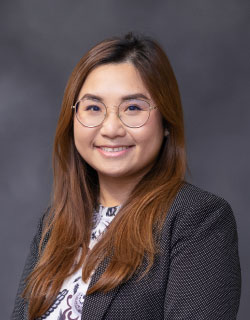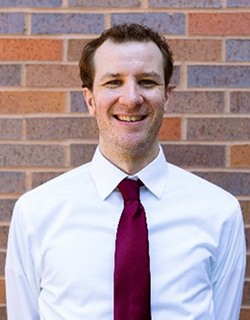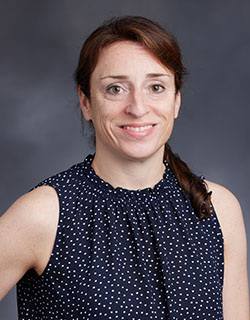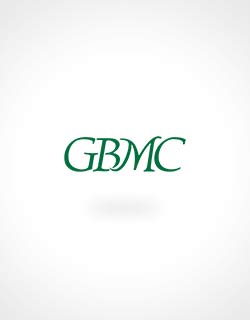Anticoagulation Clinic at GBMC
The Anticoagulation Clinic is a pharmacist-led outpatient service to providing personalized care for patients at risk for blood clots
The goal of the Clinic is to provide quality, compassionate care and excellent service to help you achieve better medication control and improved health outcomes.
Our pharmacist providers are trained and specialized in providing education, blood testing, monitoring, and medication management to patients taking blood thinners (warfarin and direct oral anticoagulants).
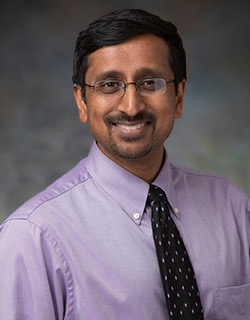
Surendra Marur, MD, MPH, FACP
Medical Director of the Anticoagulation Clinic
Dr. Marur received his Bachelor of Science degree in Engineering from The University of Michigan before traveling to India to complete his medical education at the Kasturba Medical College in Manipal. He then completed his training in Internal Medicine at Wayne State University/Sinai-Grace Hospital. He joined the Internal Medicine Residency faculty at Sinai-Grace Hospital in Detroit where he also served as their Ambulatory Clinic Director and worked as a primary care physician. He completed his Masters of Public Health from The University of Michigan during his tenure at Sinai-Grace Hospital. When he located to Maryland, Dr. Marur worked as a hospitalist at Frederick Memorial Hospital before joining the faculty at GBMC. His interests include preventive medicine, medical education, and health care management and policy.
Our Team
Our Services
- One-on-one consultation session with a clinical pharmacists/clinicians specializing in anticoagulation therapy management
- Onsite blood testing by our certified phlebotomist(s)
- Medication list review at each visit
- Consultation with your primary care physician to ensure appropriate medication regimens
- Appointment reminder calls for every visit
- Warfarin, enoxaparin (Lovenox), fondaparinux (Arixtra) refill authorizations
Frequently Asked Questions
What is Warfarin and how does it work?
Warfarin (also known as Coumadin) is a medication used to prevent your blood from forming clots. It works by blocking your body’s ability to make vitamin K-dependent clotting factors in the liver. These factors are needed for your body to form clots when you bleed.
How do I know my Warfarin is working?
At each visit to the AC Clinic, a lab test know as an International Normalized Ratio (INR) will be performed. The INR is used to determine the amount of time it takes your blood to clot while taking warfarin. Your required dose of warfarin will depend on this value and your goal INR range. If you fall below your goal range, your blood may be too thick, which could increase the chances of a clot forming. If your result is above your goal INR range, your blood may be too thin, which could increase your risk of bleeding. INR lab results enable pharmacists to make dosage adjustments while you are here for your visit. When used correctly, warfarin is safe and effective for patients.
Why is Vitamin K so important to Warfarin?
Vitamin K reverses the effect of Warfarin so if you constantly change the amount of food that you eat or the amount of Vitamin K that you eat, it can greatly affect your therapy. That is why it is important to maintain a consistent diet with respect to foods that are high in Vitamin K.
Vitamin K-rich foods include most green leafy vegetables such as spinach, kale, collard greens, turnip greens and lettuce as well as broccoli, cauliflower, cabbage, brussels sprouts, green herbal teas, mayonnaise and liver.
Download Dr. Gourmet: Coumadin® (Warfarin) and Your Diet
What are DOACs (Direct Oral Anticoagulants) and how do they work?
DOACs are anticoagulation medications that prevent blood clots. They are used to treat and prevent conditions such as stroke, deep vein thrombosis, and pulmonary embolism. Some examples of DOACs include: apixaban (Eliquis®), rivaroxaban (Xarelto®), edoxaban (Savaysa®) and dabigatran (Pradaxa®).
How are DOACs different from warfarin?
- Works in the body differently than warfarin
- Less interactions with food
- No INR testing
- Less frequent clinic visits
- More expensive than warfarin/higher co-pays
- Less frequent/minimal dosing adjustments
- Reversibility of a bleeding event may be more challenging
Do I have to worry about Vitamin K or any other dietary restrictions with DOACs?
There are currently no dietary restrictions with DOACs.
What if I miss a dose of my blood thinners?
It is important to take your anticoagulation medication every day, at the same time. If you forget a dose, only take the missed dose as soon as possible if you remember within the same day. DO NOT take a double dose the next day to catch up. Simply document the missed dose and notify your AC Clinic pharmacists during your next visit.
What pain-relieving medications can I take while on warfarin or a DOAC?
Acetaminophen (Tylenol®) is preferred for aches, pains, fever or headaches unless you are allergic or have a pre-existing medical condition that does not allow you to take it. Consult your AC Clinic pharmacists or primary care physician regarding a safe dosage while taking warfarin or a DOAC.
What medications should I avoid while taking blood thinners?
DO NOT take aspirin, ibuprofen (Motrin®, Advil®) or naproxen (Aleve®) unless your physician tells you to do so. These products can cause you to bleed more easily. Many over-the-counter (OTC) cough and cold medications also contain aspirin or ibuprofen. Pepto-Bismol can also cause you to bleed more easily. Always check with your doctor(s), pharmacist(s) or with the AC Clinic before taking any new OTC or prescription medications. If you consume alcohol while taking warfarin or a DOAC, please do so in moderation and let your pharmacists know so they will be able to better manage your therapy.
Who should I tell about my medications?
Many drugs can alter how Warfarin and DOACs work. Always make sure your physician(s), dentist(s), and pharmacist(s) know that you are taking an anticoagulant medication. Notify the AC Clinic when you start any new medications as dosage adjustments may be needed to compensate for the new medication(s). In case of emergency, it is advisable to wear a medical alert bracelet or carry a patient identification card that states you are taking an anticoagulant medication.
When should I seek medical attention? You should seek medical attention immediately if you notice any of the following:
- Unusual bleeding
- Blood in stool or if you have black, tarry stools
- Red or unusually dark-colored urine
- Excessive or unexplained bruising
- Any injury or fall
- Any sudden or extremely painful headache
- Unexplained shortness of breath
- Chest pain or chest pressure
- Monitor for signs of new clots as follows (if any of these following occur, seek medical attention immediately by calling your provider or going to the nearest emergency room):
- Stroke: “F.A.S.T.”
- Face: one sided facial droop, sudden vision changes and severe headache(s)
- Arms: one arm drifting downward when raising both arms, numbness on one side of the body
- Speech: difficulty speaking or understanding others
- Time: Call 911 immediately, if having any of these symptoms
- Deep Vein Thrombosis (DVT)
- New leg pain, swelling, redness, or warmth to the touch
- Pulmonary Embolism (PE)
- New unexplained shortness of breath, rapid heartbeat or chest pain
- Stroke: “F.A.S.T.”
What do I need to do as a patient of the Anticoagulation Clinic?
At your first visit, please bring a complete list of your current medications and provide your primary care physician’s contact information. This information is important for your pharmacists in evaluating and recommending an appropriate dose of warfarin or a DOAC, as well as in the case of possible drug interactions. It is very important that you keep your appointments. If you are unable to keep an appointment for any reason, please notify us at 443-849-2769.

